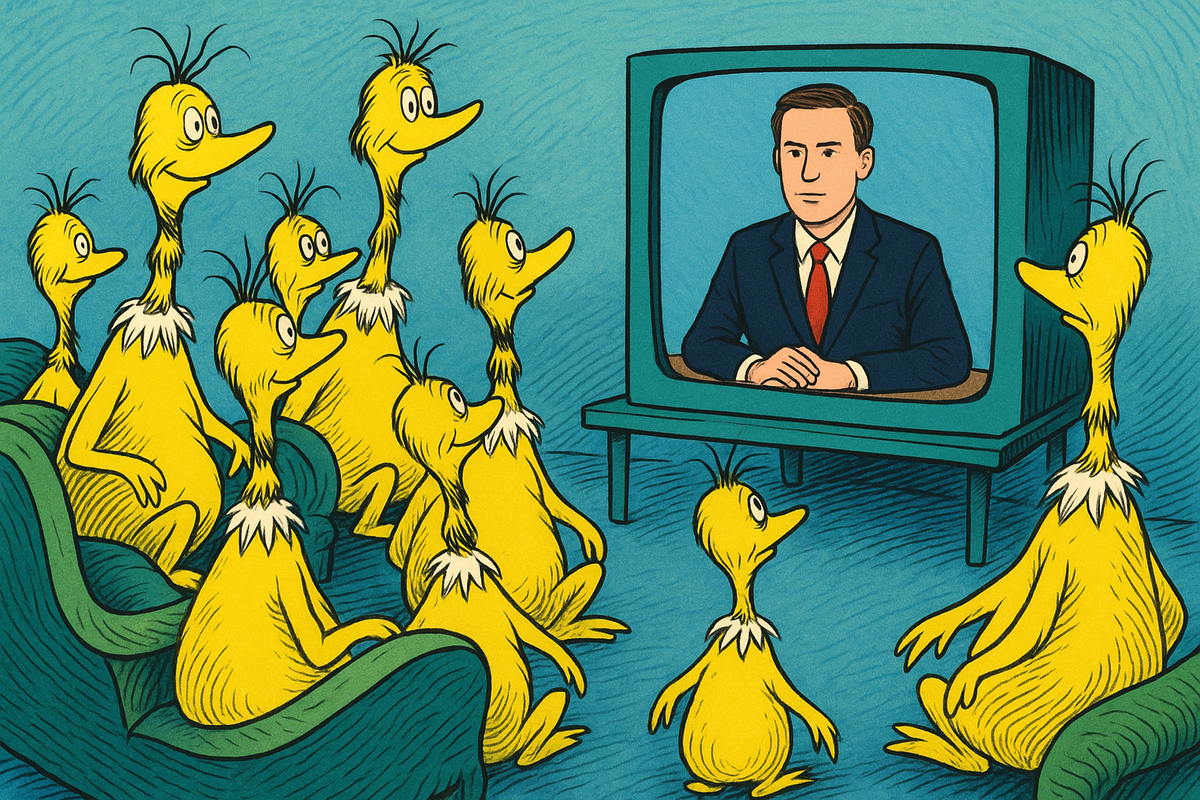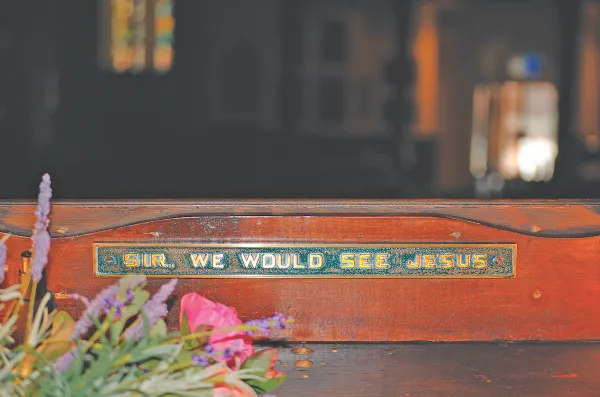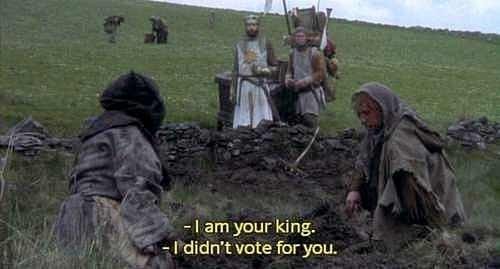This Is Extremely Dangerous to Our Democracy

There’s a video I’ve come to believe every American should see. It’s one I’ve quietly saved, shared more than once, and promised myself to repost every time it reappears in my feed. If you haven’t seen it yet, I hope today is the day that changes.
The year was 2018. Deadspin released a viral montage that stitched together dozens — perhaps even hundreds — of local news anchors from around the country reading the exact same script:
“We’re concerned about the troubling trend of irresponsible, one-sided news stories plaguing our country… Sharing biased and false news has become all too common on social media… Unfortunately, some members of the media use their platforms to push their own personal bias and agenda to control exactly what people think... This is extremely dangerous to our democracy.”
That last line — “This is extremely dangerous to our democracy” — was the kicker. When the video cuts to a grid of anchors parroting it in eerie unison, it lands (or at least it ought to!) like a punch to the gut. What’s so chilling isn’t just the uniformity — it’s the crumbling of the illusion of diversity.
The same message, parroted in the same cadence, from channels spanning ABC, NBC, CBS, FOX – ostensibly independent and objective in their reporting from a diverse assortment of worldviews, all reading from the exact same handed-down script.
Plus – these weren’t national anchors reading from a CNN or Fox studio. These were local newscasters — people we trust to tell us about the school board meeting or the weather. And yet their words were scripted by a central corporate entity — Sinclair Broadcast Group, which owns many of those stations.
🔗 Watch the video — seriously, watch it. I’ll wait.
Welcome back - Crazy right?!?
We All Know Something’s Wrong
We don’t need a video montage to tell us that something is off. We feel it. We're divided in ways we haven’t been in decades — not just by ideology, but by what we think is real. Two people can watch the same footage and walk away believing opposite things happened. The way we get our information is clearly broken, and it's making us suspicious of each other, angry at everyone, and tribal beyond reason.
We’ve been played. And many of us still don’t know it.
Our division isn’t just unfortunate — it’s profitable. It’s strategic. And it’s being intentionally cultivated by media companies, platforms, politicians, influencers, and algorithms who do not care about you, your neighbor, or your soul.
Division has become a business model. And business is good.
Dr. Seuss Was Ahead of His Time
Oddly enough, one of the best illustrations of this dynamic comes from a children’s book: The Sneetches by Dr. Seuss.
In the story, Sneetches with stars on their bellies look down on those without. That simple mark becomes a dividing line — a status symbol. Then enters a shady entrepreneur named Sylvester McMonkey McBean, who sells star-belly makeovers to the Plain-Bellied Sneetches… for a price.
Once the star-less Sneetches get their stars, the original Star-Bellied Sneetches panic — how will anyone know they’re better now? McBean offers a new service: star removal. And so it goes — back and forth, stars on, stars off — until no one can remember who had what to begin with. McBean drives away laughing, their money in his pocket, while they’re left exhausted, confused, and broke.
Sound familiar?
The stars on the Sneetches' bellies could be anything — a mask, a flag, a hashtag, a vaccine, a political affiliation, a social media trend. The point isn’t the mark. The point is how eager we are to define ourselves by it, and how quickly others profit by stoking the anxiety that comes with being on the right side.
Like the Sneetches, we’re caught in cycles of insecurity, performance, and tribal outrage — and all the while, the McBeans of the world cash in. Whether it’s ad revenue, campaign donations, alternative media subscriptions, or social media engagement, there’s always someone making a profit off your fear.
A Healthy Dose of Suspicion
So what do we do?
We slow down.
We breathe.
And we commit to being the kind of people who are harder to manipulate. That doesn’t mean checking out of society or politics. It means learning to recognize the signs of a McBean-style operation — when fear is being used to sell something, when anger is being monetized, when information is being packaged to reinforce tribal loyalty rather than pursue truth.
Here’s a rule of thumb:
If someone is trying to sell you access (upgrade to premium now!), sell you fear ("those people" are ruining everything!), or sell you certainty (here’s the real truth that those other people don’t want you to know about!), proceed with caution.
We need to carry a healthy degree of suspicion toward any media outlet — left or right — that makes its money through ad revenue or paid subscriptions. That doesn't mean everything they say is false. But we can't be so foolish to ignore that it does mean everything they say is incentivized. And when profits are involved, truth often becomes secondary to engagement.
In a world where voices are loudest when they’re divisive, the most radical thing we can do might just be… to listen. Not to the shouting match on cable news, but to each other. To nuance. To complexity. To the full story.
Because if we don’t, we might just find ourselves broke, bitter, and starless — wondering how we got here, while someone else drives away laughing.



